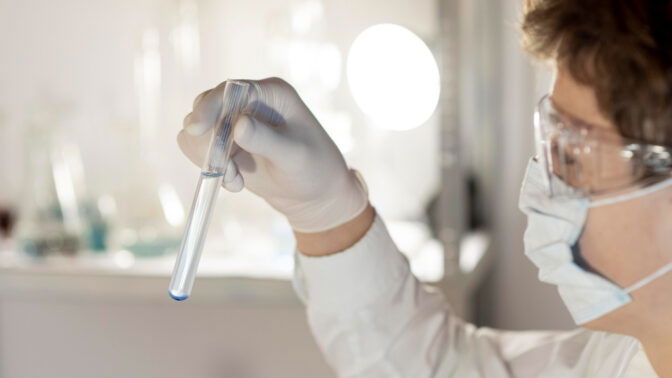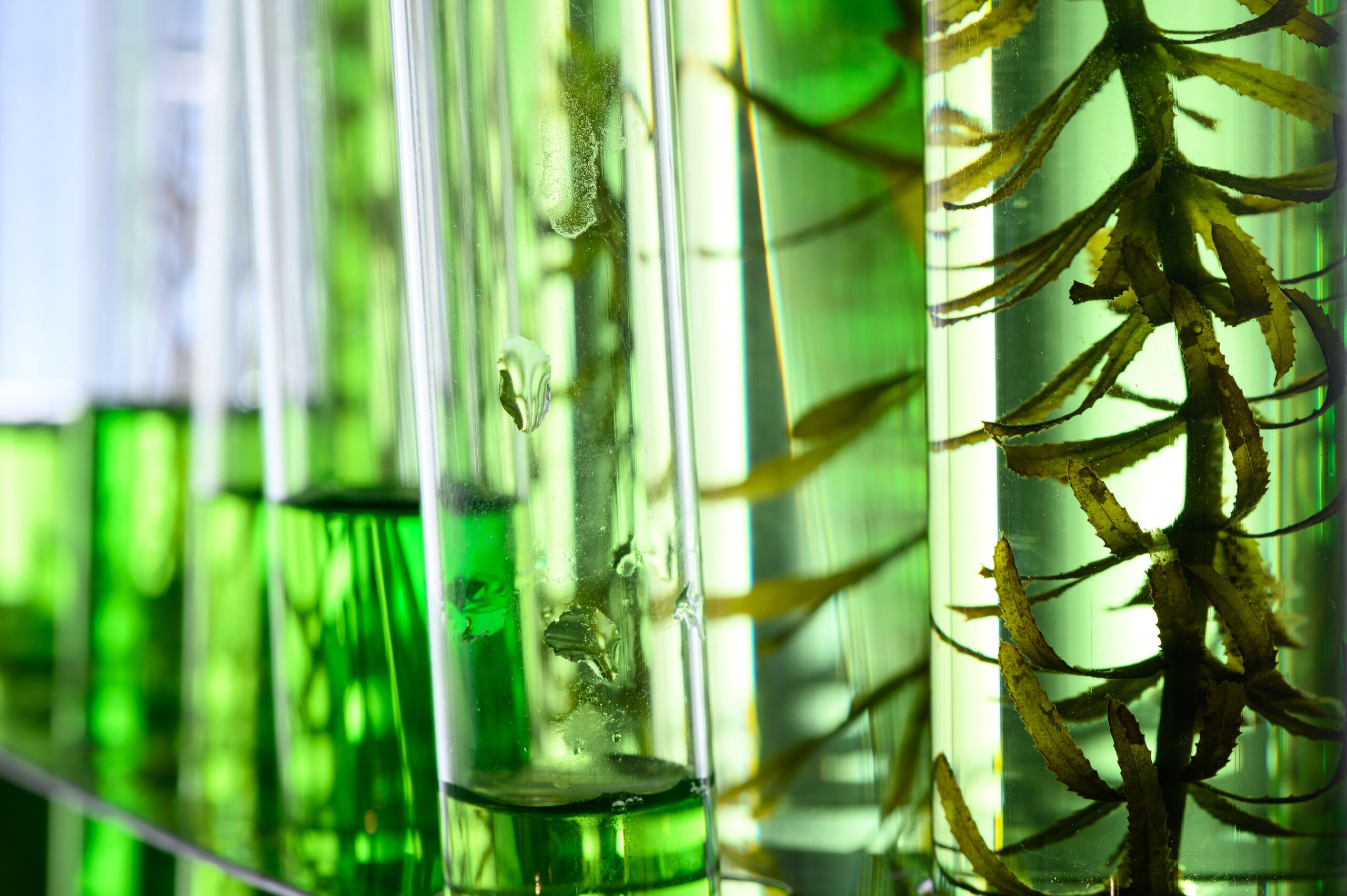Ideas on How to Come up With a Good Chemistry IA Topic

Choosing a Chemistry IA topic is the crucial first step that will affect the quality of your final IB Chemistry Internal Assessment.
It shouldn’t be too broad or too specific because you don’t want to deal with too much or, vice versa, not enough data. So, it really does pay to invest time in choosing the right question for you.
Also, you need to align your topic with the IB Chemistry curriculum. It requires you to take a closer look at one of the sections of the syllabus rather than trying to experiment in a completely new area. And this is not the only limitation. You should also consider the capacity of your school lab. It is best to avoid investigations that require equipment or materials your school may not have, or if you need more than 10 hours to conduct them. Ideally, you want a good neat experiment that interests you but that has limited capacity to become overly complicated and require extra lab-time in lunch breaks or after school, which can be challenging to organise.
The best IA Chemistry topic hits the spot between your personal interests and academic rigour. In this way you will keep your motivation high and hopefully enjoy investing the time to make your IA as good as it can possibly be.
There are several ways to achieve this balance:
- Link it to your hobbies, cultural background, or daily activities. For example, you might be interested in sustainable living practices. In this case, it is a great idea to analyse the biodegradability of different cleaning products or the chemical composition of eco-friendly alternatives.
- Focus on your favourite type of chemistry. Do you like Organic chemistry best? You might be interested in investigating the synthesis of some organic medicines. Or maybe you prefer inorganic Chemistry? Then you can research different types of pigments used in paints throughout history and analyse the impact of factors like light, humidity, and temperature on their stability.
- Explore interdisciplinary connections. Chemistry has connections with Biology, Environmental Science, Food Science, and Engineering, just to name a few. If you go this route, you can, for instance, investigate how the heating of everyday acidic foods can change the concentration of ascorbic acid.
This is just one example, now it’s over to you to brainstorm others. What we can say for sure is that our IB Examiners recommend this approach. As it often allows you to identify topics that are interesting and engaging, partly because they are chosen less frequently by students.
Our detailed guide has more tips on how to pick a suitable topic for Chemistry IA, so if you don’t find a suitable topic for you from the list below, check out the article How to pick a topic and write your Chemistry IA to perfection. Good luck!
30 great Chemistry IA Topic Ideas
If none of this has given you any inspiration, you might want to try some ideas found on the internet.
However, you need to realise that they have likely been explored extensively. You don’t want to have a topic your teacher and the examiner has seen many times before.
Still, these suggestions may be useful. You just have to breathe new life into them by adding a unique twist. For example, “Investigating the effect of temperature on the rate of a chemical reaction” is quite a generic and perhapsoverused topic. However, you can turn it into “Investigating the effect of temperature on the rate of the reaction between vitamin C and an oxidising agent, and linkit to the degradation of vitamin C in fruits and vegetables stored at different temperatures”. Now this is a more unique and relevant topic.
Having said that, let us take a look at our 30+ Chemistry IA ideas.
Kinetics & Thermodynamics
- The Temperature Factor: Explore how temperature impacts the rate of a specific reaction and calculate its activation energy.
- Concentration’s Influence: Examine the effect of reactant concentration on reaction rate, determining the overall order of the reaction.
- Catalysis in Action: Investigate the impact of a catalyst on reaction rate and propose a potential mechanism for its function.
- Enthalpy Exploration: Use calorimetry to determine the enthalpy change of a reaction (combustion, neutralization, etc.)
- Equilibrium Investigations: Study a reversible reaction to determine its equilibrium constant and explore factors that shift the equilibrium position.
Organic Chemistry
- Esterification Exploration: Synthesise an ester, optimize reaction conditions, and determine its percentage yield.
- Natural Product Analysis: Investigate the composition of a natural product (e.g., essential oil) using techniques like extraction or distillation.
- Polymer Possibilities: Synthesise a polymer and characterize its properties (e.g., tensile strength, melting point).
- Drug Analysis: Determine the concentration of an active ingredient in a pharmaceutical (e.g., aspirin tablet) using titration.
Redox & Electrochemistry
- Electrochemical Cells: Construct different electrochemical cells, measure cell potentials, and explore the electrochemical series.
- Electroplating Efficiency: Investigate factors affecting the efficiency of electroplating a metal and calculate the amount deposited.
- Battling Corrosion: Examine methods of preventing the corrosion of a specific metal and evaluate their effectiveness.
- Redox Titrations: Use redox titrations to determine the concentration of an unknown solution (e.g., vitamin C content in fruit juice).
Analytical Chemistry & Spectroscopy
- Spectrophotometry Sleuthing: Use spectrophotometry to determine the concentration of a coloured compound by creating a calibration curve.
- Chromatography Creations: Employ paper or thin-layer chromatography to separate and identify components in mixtures (e.g., plant pigments, inks).
- The Mystery of Metal Ions: Identify unknown metal ions in solution using flame tests or precipitation reactions.
- Water Quality Analysis: Measure water quality parameters (pH, hardness, dissolved oxygen) in a local sample and compare them to safe standards.
Environmental Chemistry
- Biodegradation Breakdown: Investigate the biodegradability of different plastics under controlled conditions.
- Water Purification Techniques: Compare the effectiveness of various water purification methods (e.g., filtration, adsorption) in removing contaminants.
- Analysing Air Quality: Measure and analyse specific air pollutants (e.g., nitrogen dioxide, particulate matter) in your local environment.
Book free trial with our certified IB Chemistry teachers today
100 % of tutors are certified teachers and examiners
Materials Chemistry & Sustainability
- Bioplastics Potential: Explore the synthesis and properties of bioplastics as a sustainable alternative to conventional plastics.
- Battery Power: Investigate the performance and environmental impact of different types of batteries (e.g., lithium-ion, lead-acid).
- Dye Degradation: Study the effectiveness of different methods for degrading harmful dyes used in the textile industry.
Analytical Chemistry & Data Analysis
- Developing a Sensor: Design and test a sensor for detecting a specific chemical species using a suitable indicator (e.g., pH indicator, conductivity meter).
- Chemometrics in Action: Utilise chemometric techniques (e.g., principal component analysis) to analyse and interpret complex chemical data sets.
- Modelling and Simulations: Utilise computational modelling or simulations to predict the behaviour of molecules or chemical systems.
Miscellaneous
- The Chemistry of Cooking: Investigate how a culinary process (e.g., baking, caramelization) can be explained by chemical principles.
- Chemistry in Cosmetics: Analyse the chemical components of a cosmetic product and evaluate its claims and safety.
- Decoding Flavour: Explore the relationship between the chemical composition of food and its perceived flavour by studying specific components (e.g., sugars, acids, umami compounds) and their impact on taste perception.
- Examine Flavor Deciphering: Investigate how the chemical makeup of food influences its perceived taste, focusing on particular elements (like sugars, acids, and umami compounds) and their effects on how we experience flavor.
Chemistry IA Topic Conclusion
Choosing the right Chemistry IA topic is half the battle in ensuring that your research project is set up for success.
With the 30+ ideas we provided, there will be something to give you the inspiration you need to come up with a topic that is both unique and motivating for you to work on. Remember, even if you select a topic from our list, you need to add your own angle to make sure it is different. .
If you’re still struggling to choose the direction of your experiment or need guidance in conducting it, don’t hesitate to seek help from a tutor. At TutorsPlus, we have a team of experienced Chemistry tutors who are passionate about helping students like you. With our expert guidance, you’ll be able to create a research question that not only impresses your teacher but also inspires you to pursue your scientific interests.
Ready to choose a Chemistry IA Topic and take your project to the next level? Then contact us at 022 731 8148 and to schedule your first session and take the first step to nail your Internal Assessment.
By Sara Lloyd
Sara has been an education consultant for TutorsPlus for 15 years, and is an expert on international IB education. She is also a parent of two lively children.















